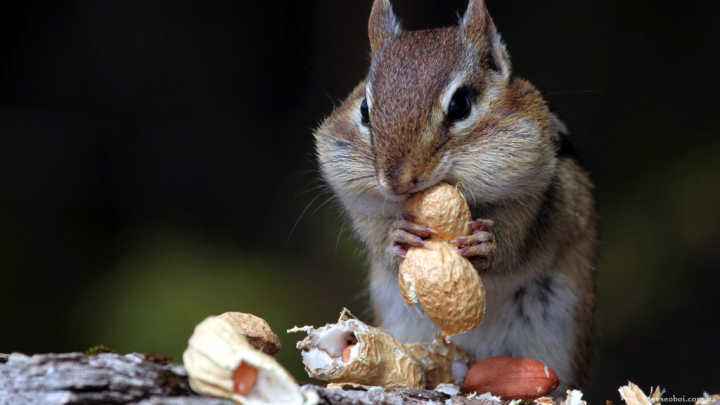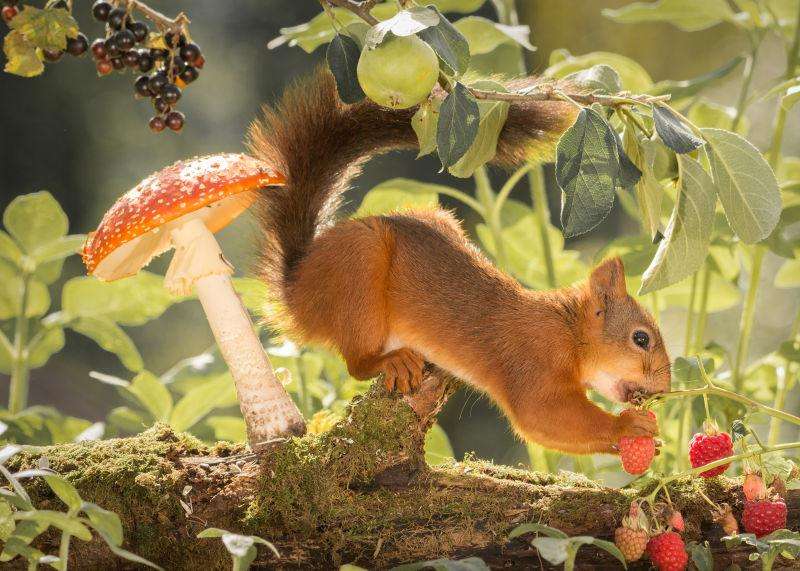The animals on earth can be very different from each other. From fleas to elephants, from mosquitoes to goldfish, from earthworms to peacocks, from spiders to pythons, they don't seem to have anything in common with each other. In fact, they have a lot in common, all animals have to eat is one of them.

In order to live, many animals have to look around for food every day. Arguably, this is the most important instinct of animals. Chicks will eat when they hatch from their eggs, and piglets will eat milk when they are born. Once food is cut off, all animals will face death. Why is this?
We know that all life activities need to consume energy. Breathing, heartbeat, and movement are all achieved through muscle contraction, and energy is also needed for nerve cells to send out electrical impulses, for digestive organs to secrete digestive juices, and for cells to synthesize the macromolecules inside the body. Just as power plants need to burn coal or natural gas in order to supply electricity, animals need energy through the "burning of fuel" to obtain.
For animals, this "fuel" is food, an important role of food is to provide energy. In fact, animals use the principle of food, and power plants burn fuel to generate electricity is the same. The power plant burns coal, turning it into carbon dioxide and water, and the energy released during combustion is converted into electricity. Animals also "burn" food, food will also be converted into carbon dioxide and water. The energy released is not used to generate electricity, but to synthesize ATP (adenosine triphosphate), a "high-energy compound" that supplies the energy needed for various life activities.
In addition to providing energy, the second important role of food is to provide the "parts" needed to replace the body. The amino acids that make up protein molecules, the fatty acids and glycerol that make up fats, and the vitamins necessary to maintain normal life activities (as "additional components" of the proteins that catalyze chemical reactions - enzymes) need to be "extracted" from food. "extraction".
Metabolism accompanies living beings throughout their lives, and their muscles need to be renewed. An inanimate object does not renew itself. A rock can change only very little over billions of years, and its age can be calculated from the ratio of isotopes it contains; the composition of deep Arctic ice also remains almost unchanged for a long time, and the composition of the air hundreds of thousands of years ago can be known from the bubbles inside it. But living things are highly complex and fragile, and the "building blocks" inside the organism have to be continuously repaired and renewed in order for life to continue.
Many animals live for decades, but most of the cells inside the body do not live that long. Human intestinal wall cells need to be replaced every two or three days, epithelial cells are replaced every 28 days or so, and liver cells are replaced about once a year. Bone cells, which people think will not grow and change after adulthood, also need to be renewed every 10 years or so.

This is true for cells, and the "lifespan" of molecules inside cells is even shorter. Some protein molecules have a "life span" of only a few minutes. Some long-lived cells, such as nerve cells, have molecules that are constantly being replaced. After 10 years, especially in adults, although it may seem like nothing has changed from 10 years ago, almost all the cells and molecules in the body have been replaced during that 10-year period.
The constant renewal of the animal body, the repair and renewal of the "building blocks" of the animal body, and the replacement of molecules in the cells all require food to provide energy.
Tag: Animals